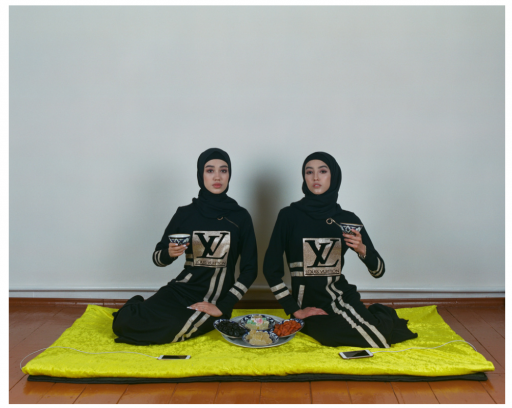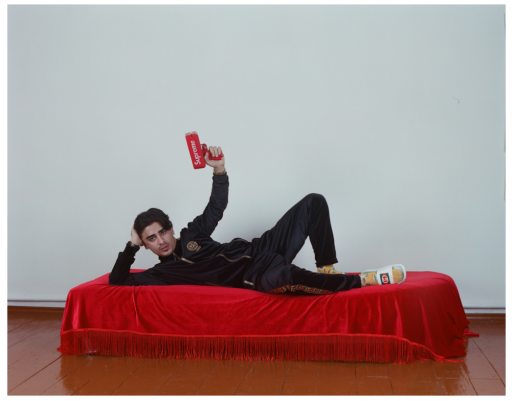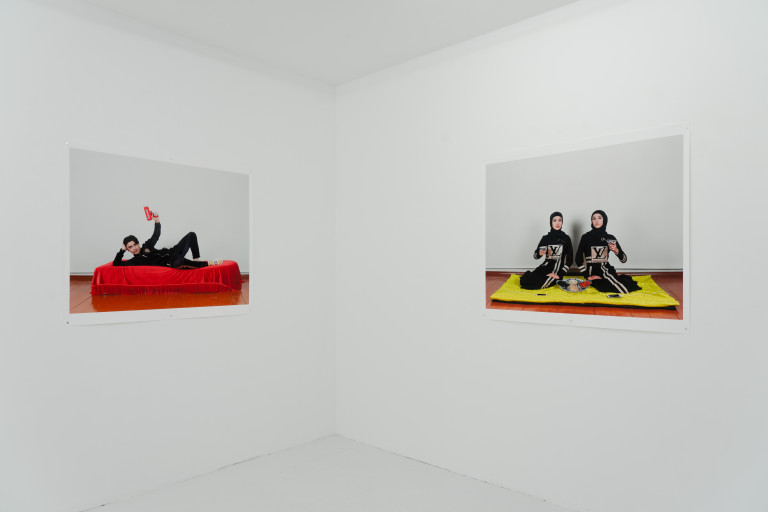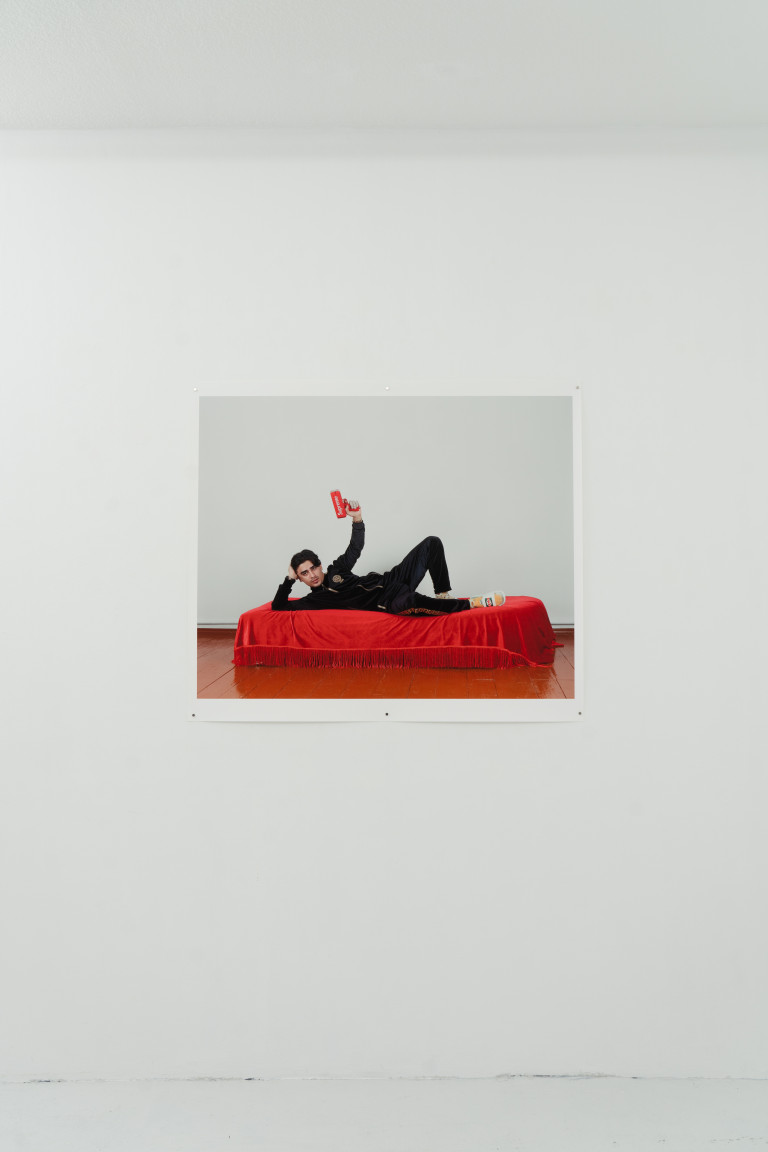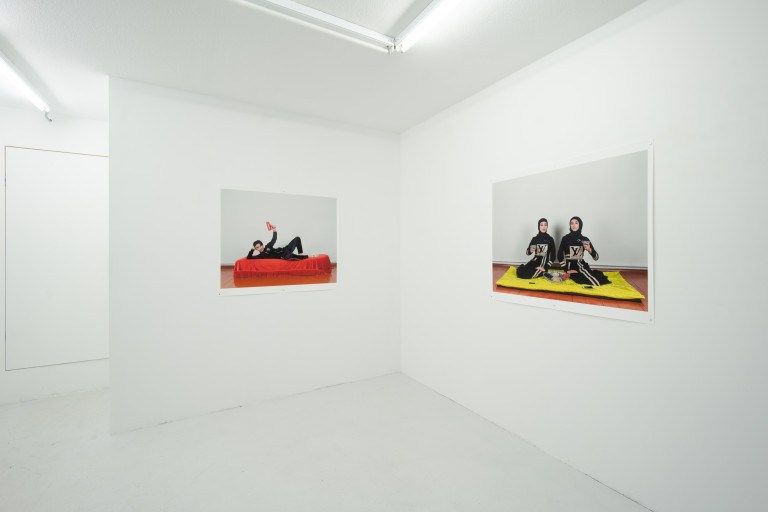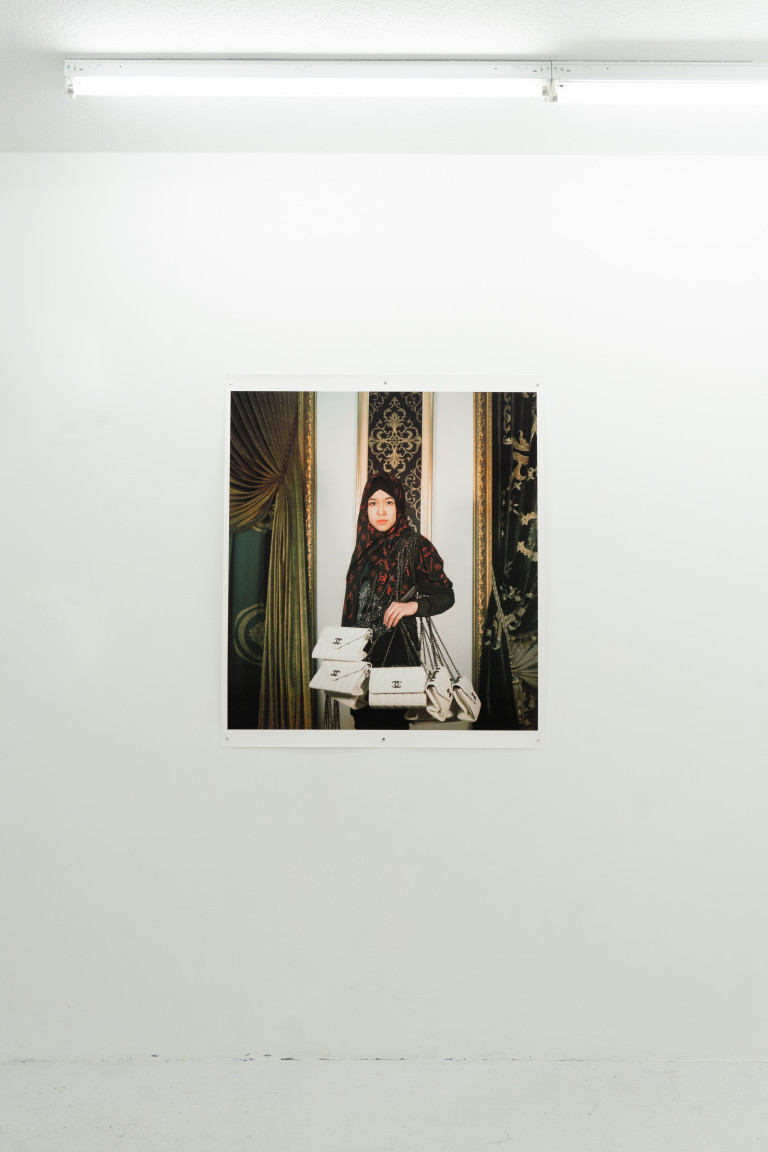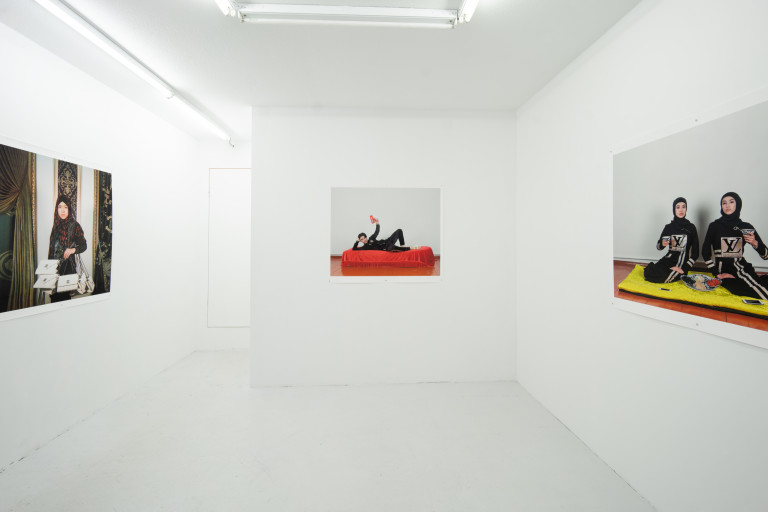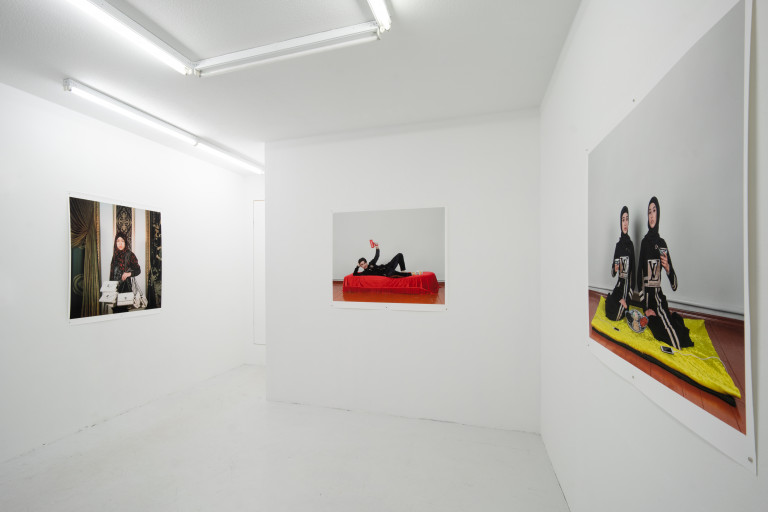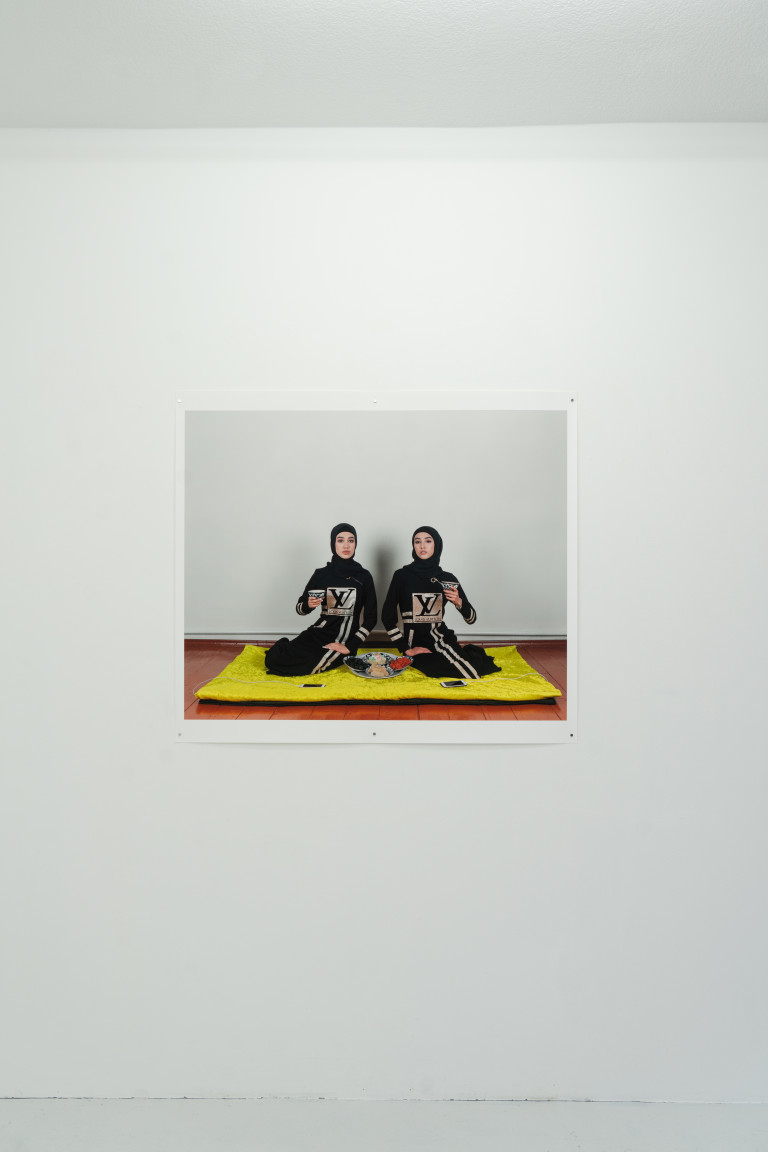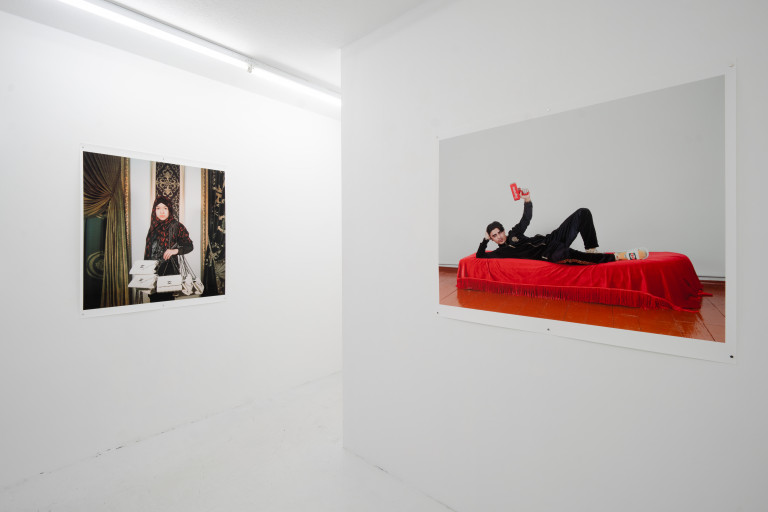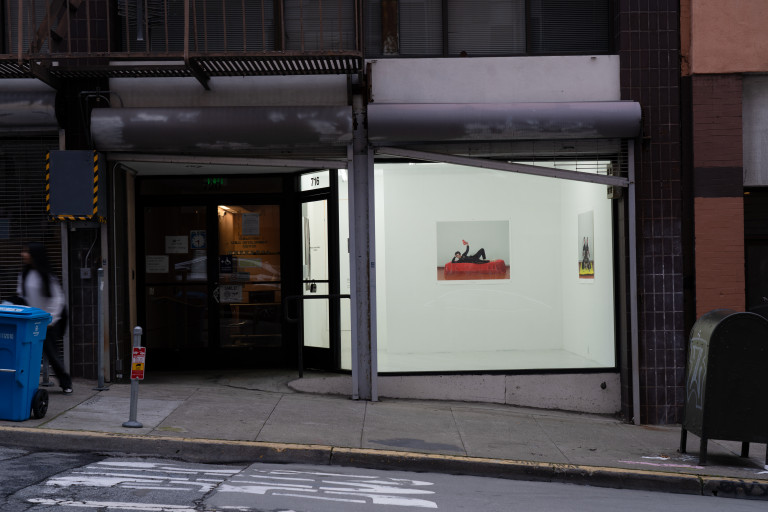Micki Meng presents Hassan Kurbanbaev, works from Logomania : Owning The World at Half Price, 2019- 2020
He holds a gun like he’s firing the warning shot for an invasion of taste. The gun is a Cash Cannon. It shoots money. It’s made in collaboration with Supreme - you can tell because it says Supreme on it. Or this one isn’t made by Supreme, because it’s from a bazaar in Tashkent. But it could be made by Supreme, if they felt their logo needed a trigger. And it turns out they did feel that way, because they made some themselves, but not many, and not any more, so now you have to buy one at auction in Dallas for $525. Or in this bazaar in Tashkent, where they’re a dime a dozen. Then you can buy fake dollars to fire out of it. The fake dollars also say Supreme on them, so they’re even more valuable than actual dollars. But this guy doesn’t just have Supreme. He’s got a velour Fendi tracksuit to add to his brand salad. He looks like an athlete wearing a kit for three rival teams. At least the throw on his Ottoman brings out the red of his gun and Gucci sliders.
In the decades following the Soviet Union’s collapse in 1991, Hassan Kurbanbaev has witnessed the proliferation of Western luxury brand logos in Uzbekistan, where he lives and works. They infest pillows, plastic bags, or mutate and proliferate where they shouldn’t, with Apple’s bitten fruit stitched in sequins on slippers and jackets. And so Kurbanbaev stages his portraits as a traditional studio photographer might, only the props adorning his young subjects serve to obscure identity at the moment of exposure, as they hide behind multi-brand allegiances and grotesquely metastasising Chanel handbags. Where logos replicate, so do objects, and ultimately even people, as in Kurbanbaev’s portrait of two women branded with Louis Vuitton abayas who form mirror images of each other. Kurbanbaev gestures towards an identity vacuum in Uzbekistan, one increasingly filled with symbols of Western commercialism. And, like any good virus, once it infects, it uses its host to multiply: most of these knock-offs were manufactured in Uzbekistan itself.
These are portraits, however, not purely of Western infiltration, but a distinct brand of hybridisation. Uzbekistan’s first and only President since 1991, Islam Karimov, died in 2016. Since then, Kurbanbaev has sensed an increasing willingness to explore social and political affairs in the country, and an increased degree of exposure to the rest of the world. It is a shift that begins to dismantle, as he says, “a long story of censorship and lack of truth about ourselves”. He sees people now proud to be Muslim, who might revel in the opportunity to flaunt a Chanel hijab. And when that woman poses with seven Chanel handbags amidst a backdrop that looks like the interior of the Palace of Versailles, there’s a sense that the real locus of luxury has shifted away from the historical centres of opulence in the West towards those who might now be able to seize some of its symbolic value for themselves.
– Adam Hines-Green
Hassan Kurbanbaev is a photographer based in Tashkent, Uzbekistan. In 2020, he had a solo exhibition at 139 Documentary Center, in Tashkent, Uzbekistan, titled Homework. Notable group exhibitions include Baesianz presents KIN, Guts Gallery, London, UK (2023); New East Festival : A celebration of contemporary photography, IDEAL Barcelona, Barcelona, Spain (2023); All In This Together, Photo Vogue Festival, Milan, Italy (2020); Young Curators: Tell me, Noorderlicht International Photo Festival, Groningen, The Netherlands (2020); and Post-Soviet Visions: image and identity in the new Eastern Europe, Calvert 22 Foundation, London, UK (2018). In 2023 he was a finalist in the Aperture Portfolio Prize.

